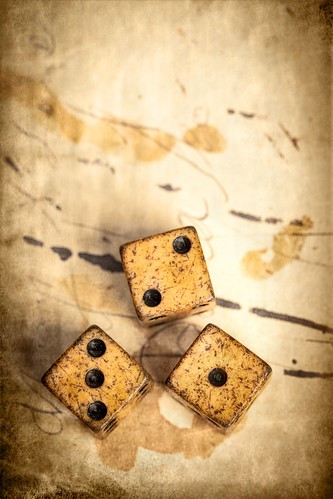There are many elements we see within games that can be frustrating, and there are some elements that we see as a saving grace. One of the main contributors that can fit in both categories is an invisible mechanism that is present in many games, the Random Number Generator.
Not in the Stars
A Random Number Generator (RNG) is an algorithm or device that yields numbers randomly or by chance. For situations where encryption is vitally important, a true RNG is used, but for gaming, where things need to be swift and effortless, a pseudorandom RNG is utilised. With a pseudorandom RNG, a seed is used with an algorithm to generate different outputs each time. New seed numbers and, therefore, results can be delivered every millisecond by seizing the last two numbers delivered and using multiplication, addition, division or subtraction to form a fresh outcome. This outcome isn’t truly random, hence the title pseudorandom RNG, as there’s nothing random about maths i.e. 5×6 will always equal 30. While using an identical seed will produce an identical outcome each time, the process is good enough for gaming and is used in several different ways.
The House
We typically think of an RNG being used in casino gaming and there are many games that require random outputs, and in this context, the technology is very welcome as it makes the games fair. While playing the classic game of bingo in the past would require the bingo caller to draw counters from a bag or select numbered balls with a mechanical draw machine, in both physical bingo halls and online, an RNG is used. Those that enjoy bingo betting online have many different bingo options available for play and each requires random outputs that can be marked off on the player’s card or grid and will determine who gets a win.

With blackjack, an RNG is used to help replicate a dealer dealing out cards i.e. the RNG will ensure in a one deck blackjack game you don’t encounter the same card twice in the same shoe. With Roulette, the RNG simulates the spinning of the roulette wheel and determines where the ball will stop. Slots are most commonly associated with RNGs as they were a feature of the physical slot machines, not just the online slots people play today. When you spin the reels, the RNG will determine which symbols will appear on the pay lines and shouldn’t be confused with the RTP (% return to player) of a selected slot. The RNG of a slot will be programmed to select particular outcomes to ensure that the RTP rate is consistent and online casinos have a duty to scrutinise the exact RTP of their slots to ensure the RNG is not defective.

The Loot
In other games, RNGs can be found when loot is available, either by opening a loot box or what is dropped when you vanquish a foe. The RNG will generally be part of a process where select items are distributed based on the level of the player or progress through the game. Some people might curse the use of RNGs with loot, but it makes the hunt for it more engaging and if you are fortunate enough to obtain a particularly rare item, it can be an unexpected joy. RNGs are central in procedural generation, which is the approach of constructing game content via an algorithm rather than human crafting. Games using this process ensure that each player gets a different gaming experience each time they play, although there are constraints to ensure the gameplay remains constant.
Speedrunning, where gamers attempt to complete a game or level as fast as possible is the area that RNGs seem to cause the most annoyance in. Great speedrunners practice a great deal so that they know the game inside and out, but an RNG can spoil everything. If you put in a perfect run and are just about to register a record time but there’s an RNG element that, for example, requires you to pick the correct door, your flawless run can be for nothing. While that might seem a minor inconvenience for a few select gamers, it does speak to a broader issue of RNGs making games more about luck than skill.
The good news is that game developers are aware of people’s dislike of RNGs in games and will be motivated to find an alternative that gains more positive feedback. Games with a form of a combined system where players can earn some items through grinding or skilful conquest, but also throwing in the odd surprise are more palatable. Until a system that provides enough randomness to keep things exciting but doesn’t irritate gamers is found, just hold on to that lucky rabbit’s foot and cross your fingers.